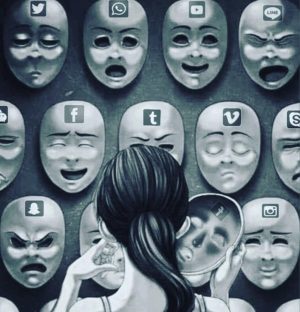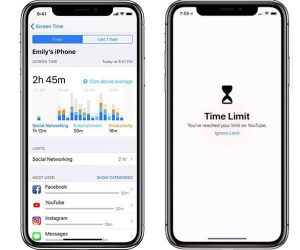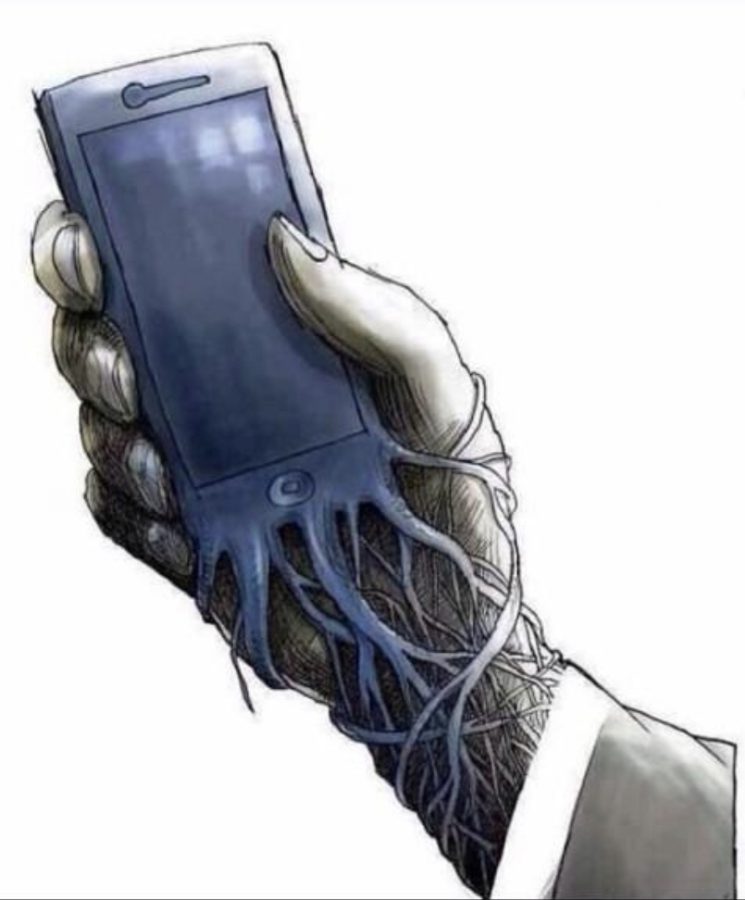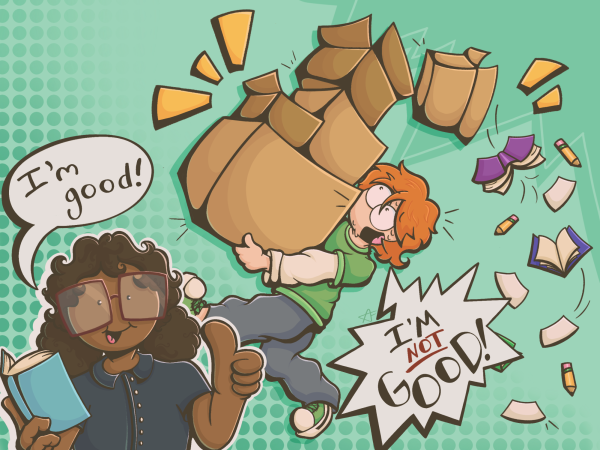Five things to do today that will change your life on social media tomorrow
November 8, 2021
Is your phone on you right now? Is it in the back pocket of your jeans? In the smallest zip-up pocket of your backpack or purse? How about in the palm of your hand? If so, then this article applies to you. Nowadays, our smartphones seem to be as essential to life as air. After all, they are one of the primary ways people communicate around the world. However, when closely examining platforms used to communicate like Instagram, Snapchat, TikTok and Twitter, researchers have found that these platforms create spaces for influencers to use propaganda, confirmation bias and appealing entertainment to gain your time and attention. By prompting you to constantly pick up your phone, media on platforms like these can bring anxiety, “social media envy” and other forms of dangerous mental health harm into your life.
If you feel as if you are wasting large amounts of time on social media, and if your productivity, connections with others or mental health is suffering, it’s time to reel your social media life into control—because you have control, and you deserve the positive benefits of using it in the virtual world.
Here are five simple things you can do today, write down for later or tell a friend who is struggling with social media addiction that are essential to staying safe as someone living in the technological era of the 21st century.
1. Recognize that a profile is not an entire identity
Be wary of profiles you allow to follow you—even if they appear harmless or similar to someone you know. The number of ‘followers’ or ‘friends’ a profile has on social media platforms does not define that person’s popularity in real life, nor how many true friends one has, and it does not have to be a competition. Having a lower number of followers can actually be safer, with more privacy and less risk of cyberbullying. If you are a user of social media, be wary that you can never really know who is on the other end of your feed and messages.

2. Know there is always more than one side to the ‘story’
Before the people who control your social media feed click the ‘post’ button, know that most of them are choosing the best of their media to share with you—the ‘highlight reel’ of their lives. When you tap to open platforms like Instagram, it seems nice to be flooded with aesthetic photos or of people simply happy. However, keep in mind that when looking at your screen, these photos could be triggering unrealistic comparisons of other people’s highlight reel to your own life. Behind the scenes, the users sharing their photos often can set up props, use photo editing apps that change their body or background, or digitally change the pictured location of their content to anywhere they would like.
3. Spring-clean your contacts and content feed
You deserve to be happy! Hit that “unfollow” button on accounts you feel are negatively impacting your mental health on a day-to-day basis or if you don’t know the person behind the profile. Instead, look for accounts to follow that will positively impact your mental health or help you learn (if they are reliable sources!). Look out for false information and propaganda posts that are showing you only what you want to believe, even if the information is false.
4. Give yourself a healthy amount of time away from the screen
Studies have shown that the more amount of time spent daily on social media links directly to more negative emotions. These are some ways you can stop the scroll to protect your mental health:
– Set ‘Screen Time’ in iPhone settings: In the iPhone ‘Settings’ app, there is an option to have your phone measure how much time you spend on all your apps, including social media platforms. You can also choose to set time limits and receive notifications for when you have reached your personal set time limit. See this video on how to turn on time limits and see your screen time.

– Download an app that will help you monitor screen time: Apps such as Screenzen, Offscreen and Flipd are made to prevent the addictive social media-feedback loop from pulling you under.
– Put physical separation between yourself and your device. Why connect less with friends and family when hanging out in person, or feel bad about being less productive when using your phone to procrastinate on homework when leaving your phone at home or setting it in another room for a few hours can prevent such distraction? Bombarding notifications and the seemingly endless scroll will still be there when you are ready, but the homework due date and often limited time with friends and family won’t pause, even if you are immersed in the virtual world.

5. Remember, you are in control.
You control whose media shows up when you open a platform, you control who can and can’t follow you and you control how close your phone is to you throughout each day. Social media, because of its addictive nature, can easily become habitual, a large part of everyday life. However, you have the power to protect your mental health by making small adjustments to how you interact with each of your social media platforms.
There’s no doubt it’s easier to keep scrolling, but when you power down the small device in your hands and return to reality, you just may find deeper fulfillment in experiencing the highs and lows of life instead of trying to escape them; hidden mysteries only seen by those who willfully practice lifting their eyes and mind from the hypnotizing effects of a screen.














